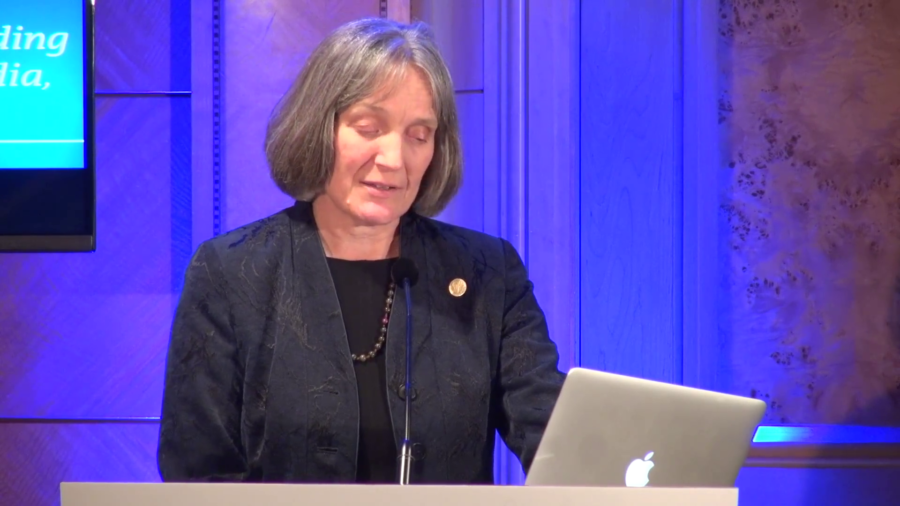Christina Engelbart: Thank you. I know we’re all wishing that my father could have been here himself today. He would have been deeply honored, and I know you all have loved him. As his daughter and also his longtime business partner, I feel so grateful for the opportunity to be accepting this award on his behalf.
Although many may not recognize his name, most people today are very familiar with the foundational technology that Doug Engelbart pioneered beginning in the 1960s. From hypertext to video teleconferencing, from the friendly computer mouse to graphical user interface, from new media to knowledge management, online communities, digital libraries, and much much more. By 1968, he and his team staged the first public demonstration of their work, which is now famously known as the Mother of All Demos.
The funding for his research came from Hall of Famer Bob Taylor at ARPA, who had been cooking up a plan to network all the computer labs he was funding. When Bob announced his plan to the principal investigators, Doug Engelbart was one of the first to line up, because it dovetailed so beautifully with his own research. So in 1969, when Len Kleinrock’s lab at UCLA was the first site on the ARPANET, Doug Engelbart’s lab at SRI was the second. UCLA had the additional task of running the network measurement center to monitor ARPANET performance, and Doug Engelbart’s group ran a network information center to serve and facilitate the ARPANET community.
Jake Feinler and Jon Postel got their start in Doug’s lab. His chief architect Jeff Rulifson was a founding member of Steve Crocker’s Network Working Group. Vint Cerf and Bob Kahn were at one point both users of Doug’s collaborative hypermedia system.
His accomplishments span many disciplines, but it all stemmed from a single research agenda in which he recognized a crucial need for humanity to get smarter and smarter at solving important problems collectively, especially in the face of accelerated change, which he anticipated beginning in 1960. The single-minded pursuit which he called “augmenting the human intellect” and later “boosting our collective IQ,” he saw not only as the greatest opportunity on the planet for unleashing our true potential as a human race but our single greatest imperative as well. And here today, forty years later, we have only still scratched the surface of this important research agenda.
So to further honor his memory and all that he worked for, I encourage you, the innovators, the global connectors, the pioneers, the Internet Society, to consider this important challenge, which is more relevant and pressing today than ever. You can find his archives and his call to action on the Doug Engelbart Institute web site, and please do keep in touch.
I’d like to thank the Internet Society, and I know my father would like to thank also his team, because it always takes a collective effort to get all of these things moving. And then he always liked to thank his family so I’ll do that, for “putting up with him all these years.” So, thank you very much.
